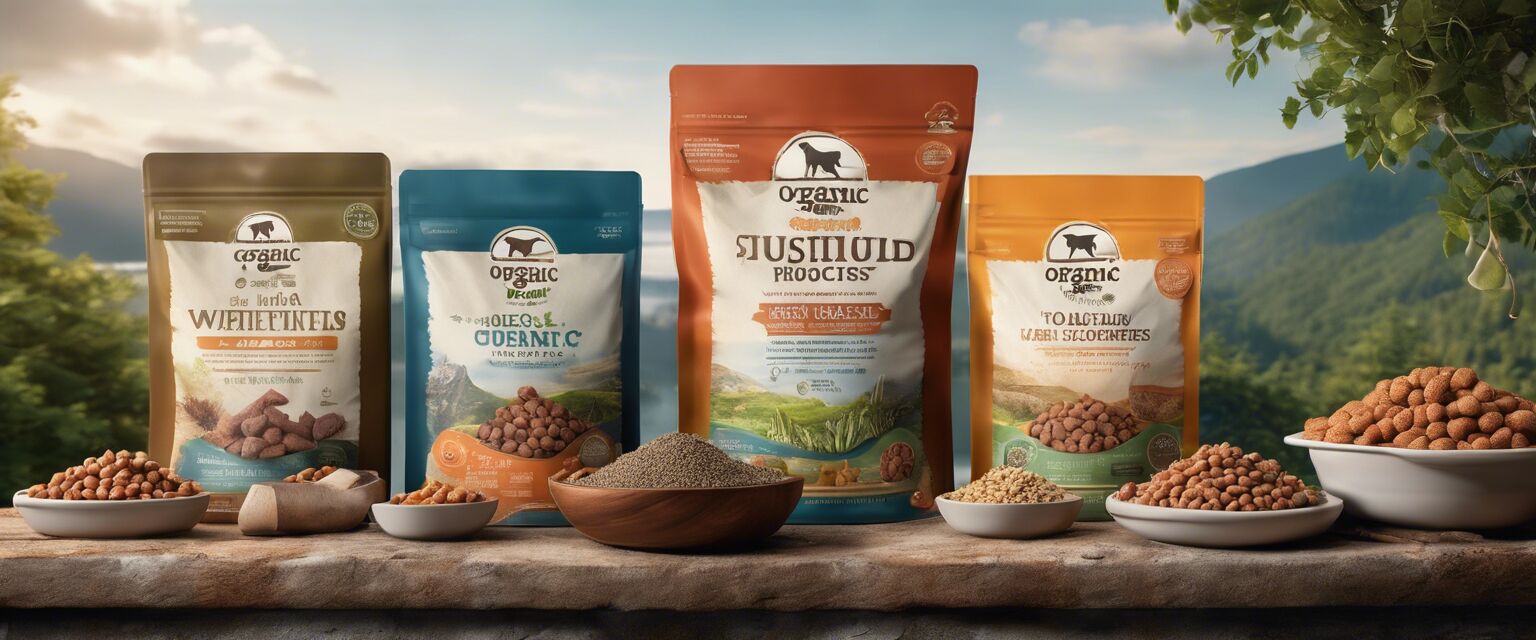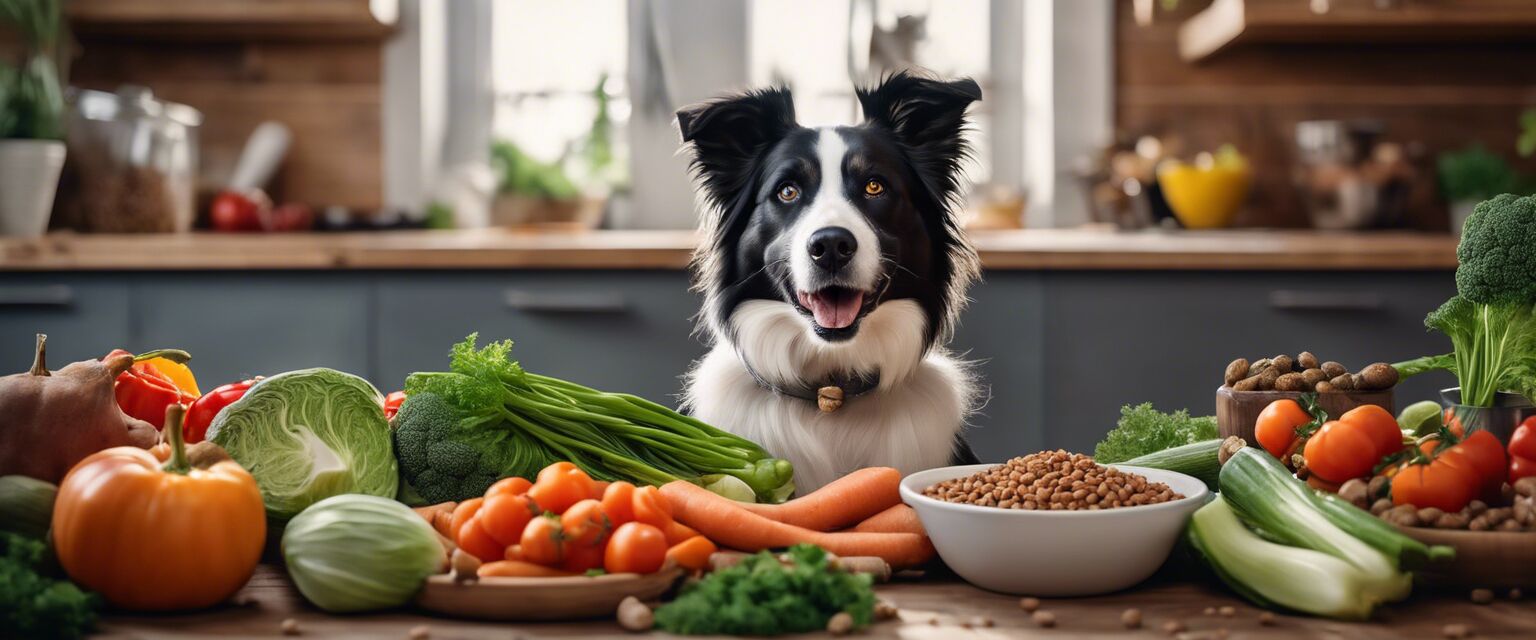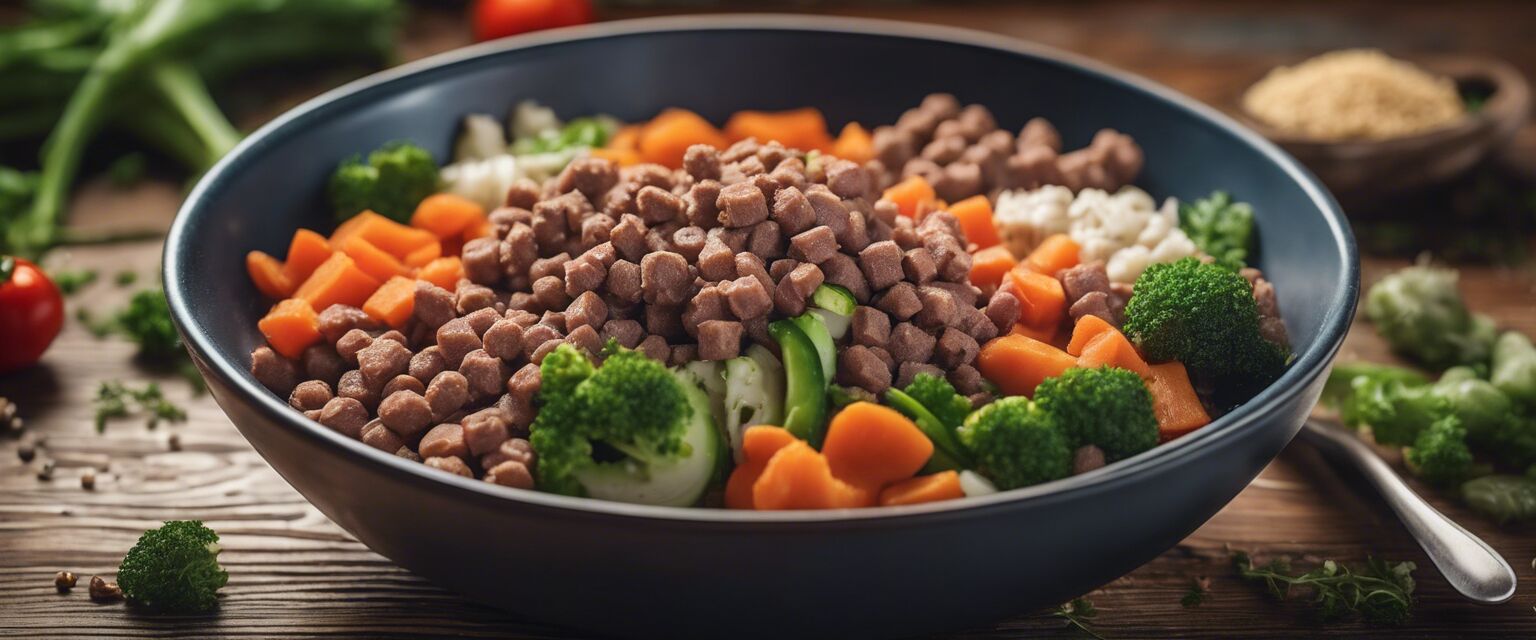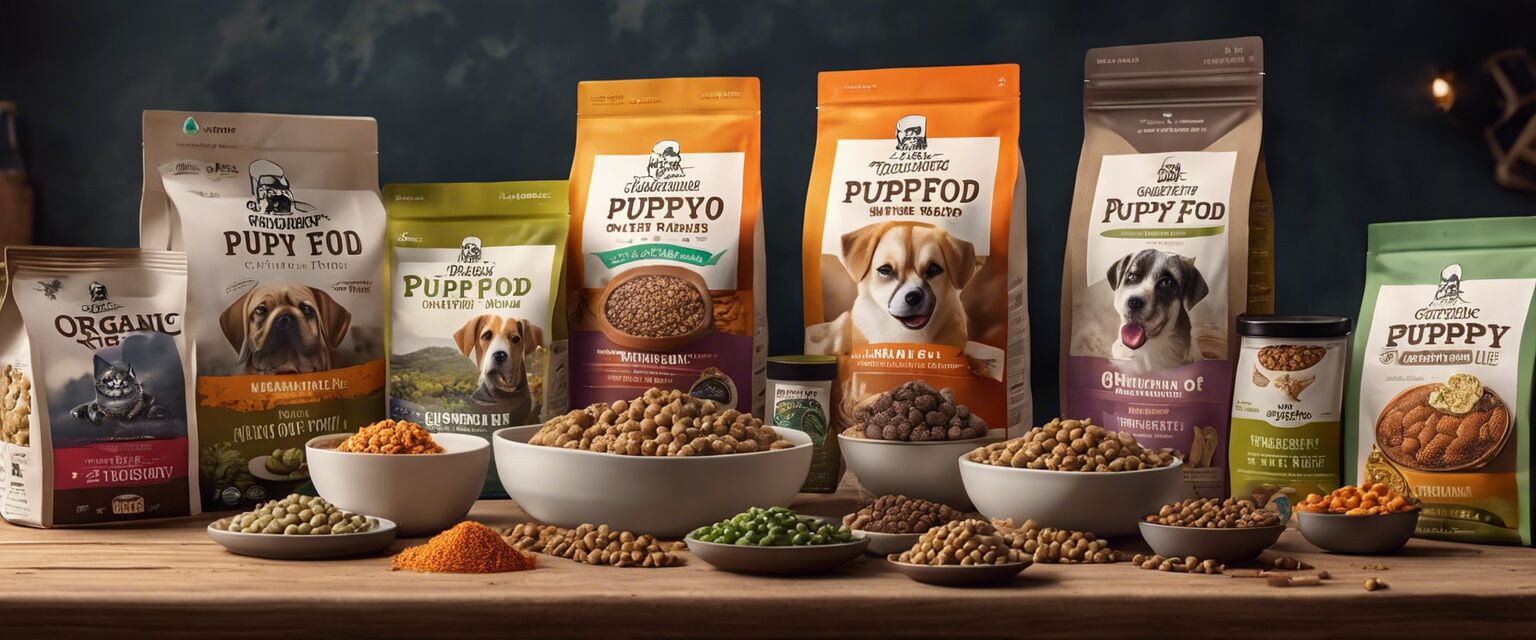
DIY Organic Dog Food Recipes
Key Takeaways
- Homemade organic dog food can provide balanced nutrition for your dog.
- Using fresh, high-quality ingredients is essential for dog health.
- Always consult with a veterinarian before making significant changes to your dog's diet.
- Experimenting with different recipes can help find what your dog enjoys most.
- Proper storage of homemade dog food is crucial for maintaining freshness.
Creating homemade organic dog food has become a popular trend among pet owners who want to ensure their furry friends eat healthy and nutritious meals. By using organic ingredients, you can control what goes into your dogâs food, avoiding unnecessary additives and preservatives. Letâs explore some delicious and easy DIY organic dog food recipes that can help you keep your canine companion happy and healthy!
Benefits of Organic Dog Food
Choosing organic dog food can offer several benefits:
- Free from synthetic pesticides and fertilizers.
- Better for the environment due to sustainable farming practices.
- Improved taste and nutritional value.
- Reduced risk of allergic reactions in sensitive dogs.
Essential Ingredients for DIY Dog Food
Before diving into the recipes, it's essential to know what ingredients you should consider using. Here are some common ingredients that are both safe and nutritious for dogs:
| Ingredient | Benefits |
|---|---|
| Chicken | High in protein and essential amino acids. |
| Brown rice | Good source of carbohydrates and fiber. |
| Carrots | Rich in vitamins and low in calories. |
| Spinach | High in iron and antioxidants. |
| Sweet potatoes | Great source of vitamins and fiber. |
Simple DIY Organic Dog Food Recipes
Recipe 1: Chicken and Rice Dog Food
This recipe is a favorite among many dogs and is straightforward to make.
Ingredients:
- 1 cup of organic chicken, cooked and shredded
- 1 cup of brown rice
- 1/2 cup of carrots, shredded
- 1/2 cup of peas
- 4 cups of water
Instructions:
- In a large pot, combine the water, chicken, and rice.
- Bring to a boil, then reduce heat and simmer for about 20 minutes.
- Add the carrots and peas, and cook for an additional 10 minutes.
- Let cool before serving.
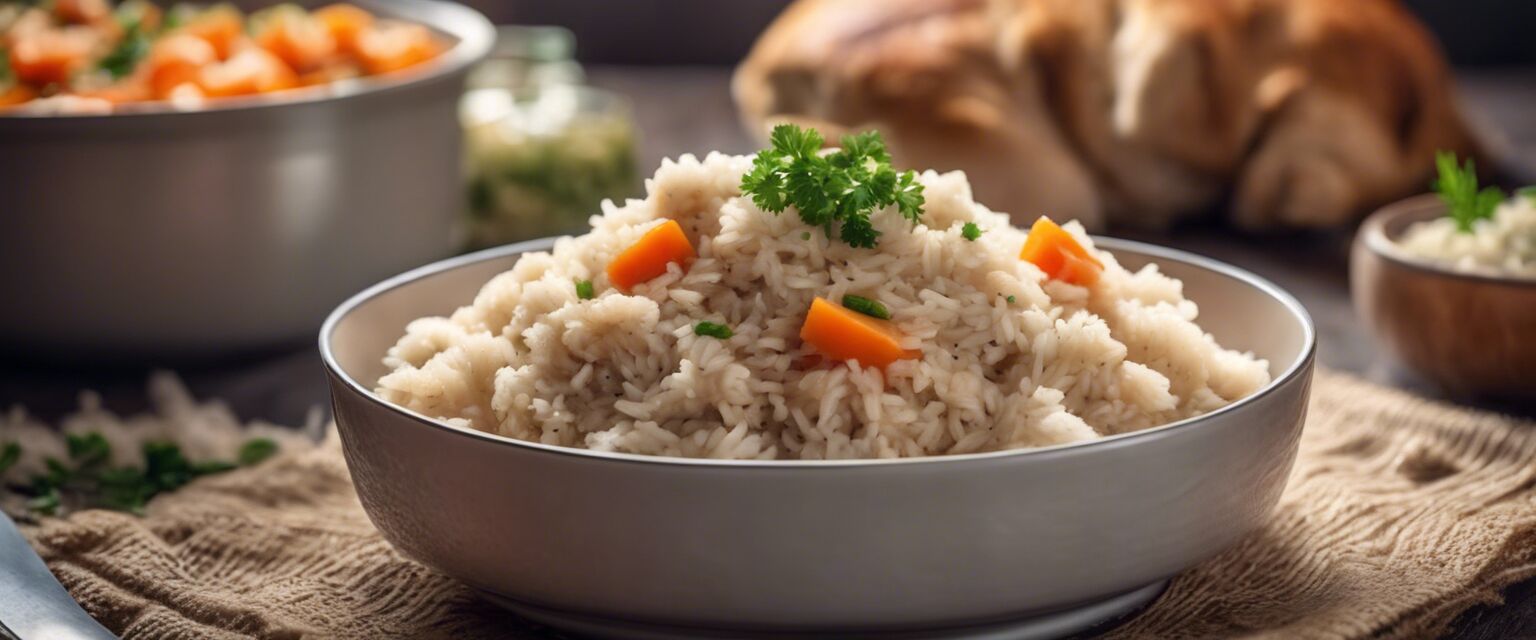
Recipe 2: Beef and Sweet Potato Dog Food
This hearty recipe is perfect for dogs who enjoy a meatier meal.
Ingredients:
- 1 pound of organic ground beef
- 1 cup of sweet potatoes, diced
- 1/2 cup of carrots, diced
- 1/2 cup of peas
- 4 cups of water
Instructions:
- In a large skillet, cook the ground beef over medium heat until browned.
- Add the sweet potatoes, carrots, and water.
- Bring to a boil, then reduce heat and simmer for 30 minutes.
- Add peas and cook for an additional 5 minutes.
- Let cool before serving.
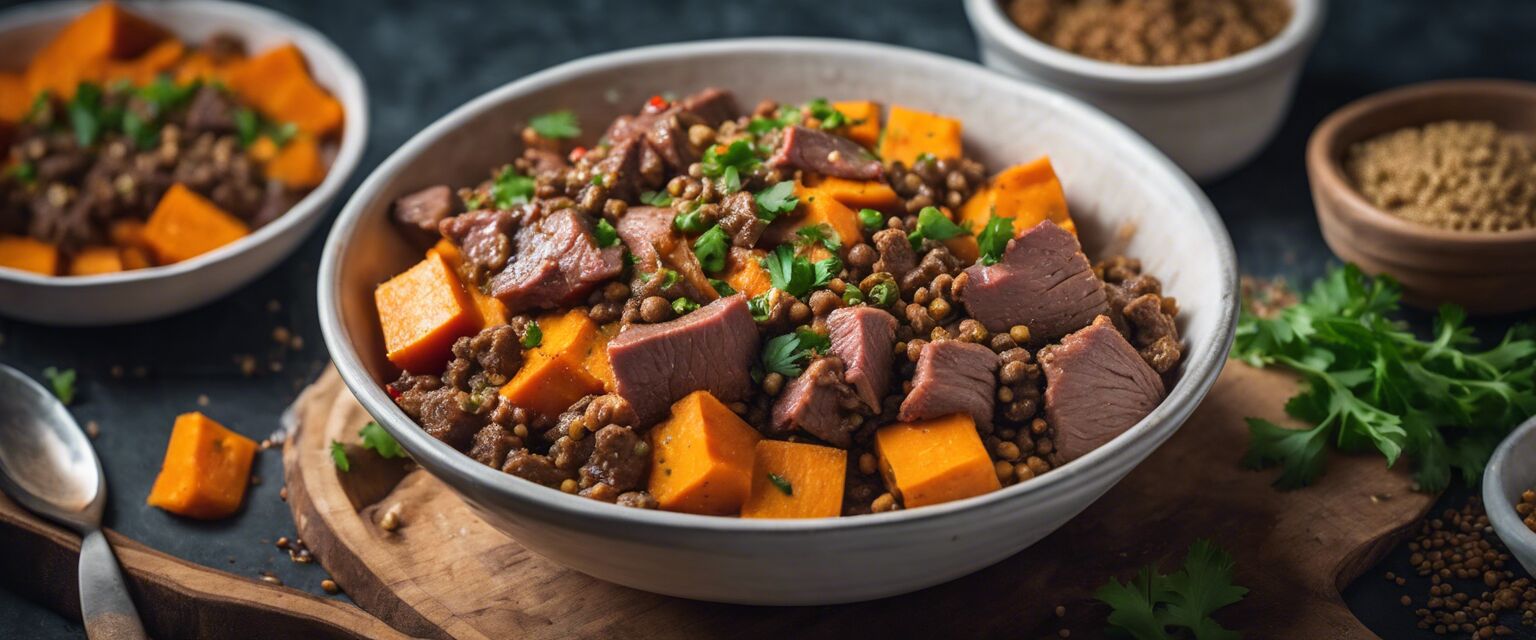
Storing Your Homemade Dog Food
Once youâve prepared your dogâs food, itâs essential to store it correctly:
- Store excess food in an airtight container.
- Keep in the refrigerator for up to 5 days.
- You can freeze portions for up to 3 months.
Tips for Transitioning to Homemade Dog Food
Beginners Section
- Start by mixing homemade food with your dogâs current food.
- Gradually increase the amount of homemade food over a week.
- Monitor your dogâs reaction to the new diet closely.
- Consult your veterinarian for any dietary concerns.
Conclusion
Preparing DIY organic dog food can be a rewarding experience for you and your dog. With these recipes and tips, you can create nutritious meals tailored to your dogâs needs. Remember, itâs essential to consult with your veterinarian when making significant changes to your dogâs diet to ensure they are getting the right nutrients.
Pros
- Full control over ingredients and nutrition.
- Ability to customize recipes based on your dogâs preferences.
- Can be cost-effective in the long run.
Cons
- Time-consuming to prepare meals regularly.
- Requires careful planning to ensure balanced diets.
- Possible higher upfront costs for organic ingredients.
Explore More Recipes
If youâre looking for more options, check out our other articles on dry dog food, grain-free dog food, puppy food, raw dog food, and senior dog food.
